The BigPicnic project, funded by an EU Horizon 2020 grant, has involved 16 botanic gardens working with people to explore the issue of food insecurity with the aim of getting their voices heard by policy-makers. Working with organisations and individuals in Edinburgh and Glasgow the project has been using a video making technique called digital storytelling to enable people to tell their stories. Digital stories are created with user-friendly technology and place emphasis on the story and the quality of the sound recording. Still images illustrate the story, but no actual video footage is necessary. The 19 stories created in this way explore food insecurity from a variety of perspectives and are emotionally powerful and engaging.
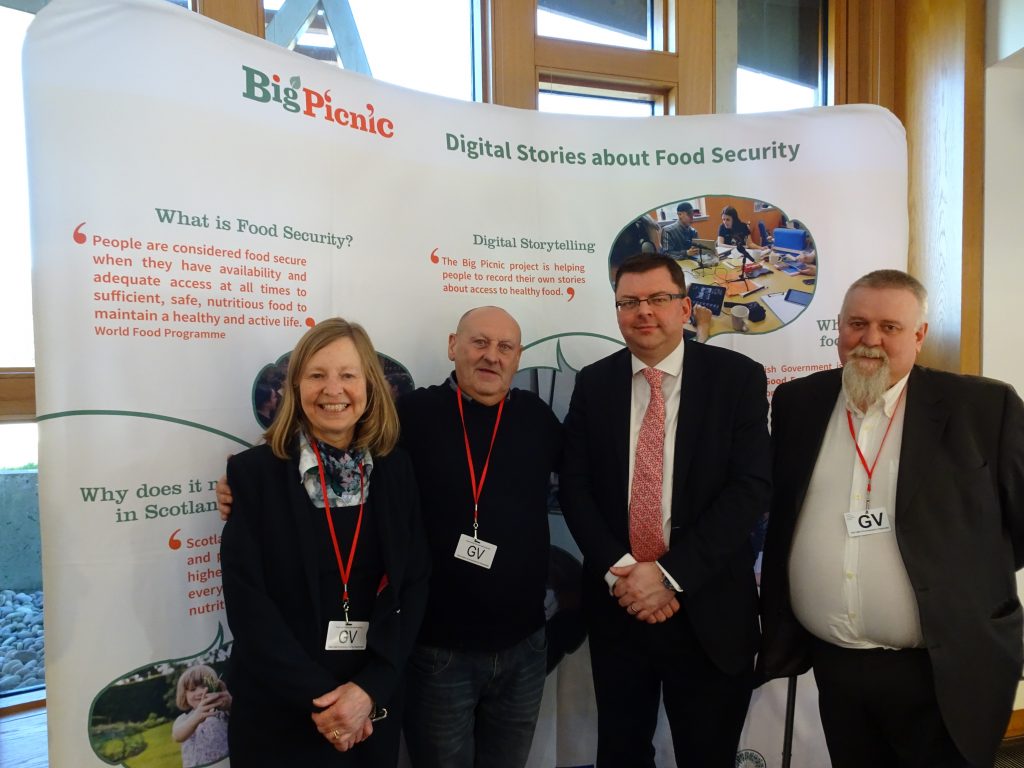
On 16 January 2019 the BigPicnic project took the stories to an event at the Scottish Parliament. Many of the creators of the stories were present and all Members of the Scottish Parliament (MSPs) were invited. Colin Smyth MSP acted as the sponsor for the event. In his welcome speech Colin Smyth highlighted recent Scottish Government research that showed “almost one in five people in our most deprived areas have worried about running out of food in the last year.”
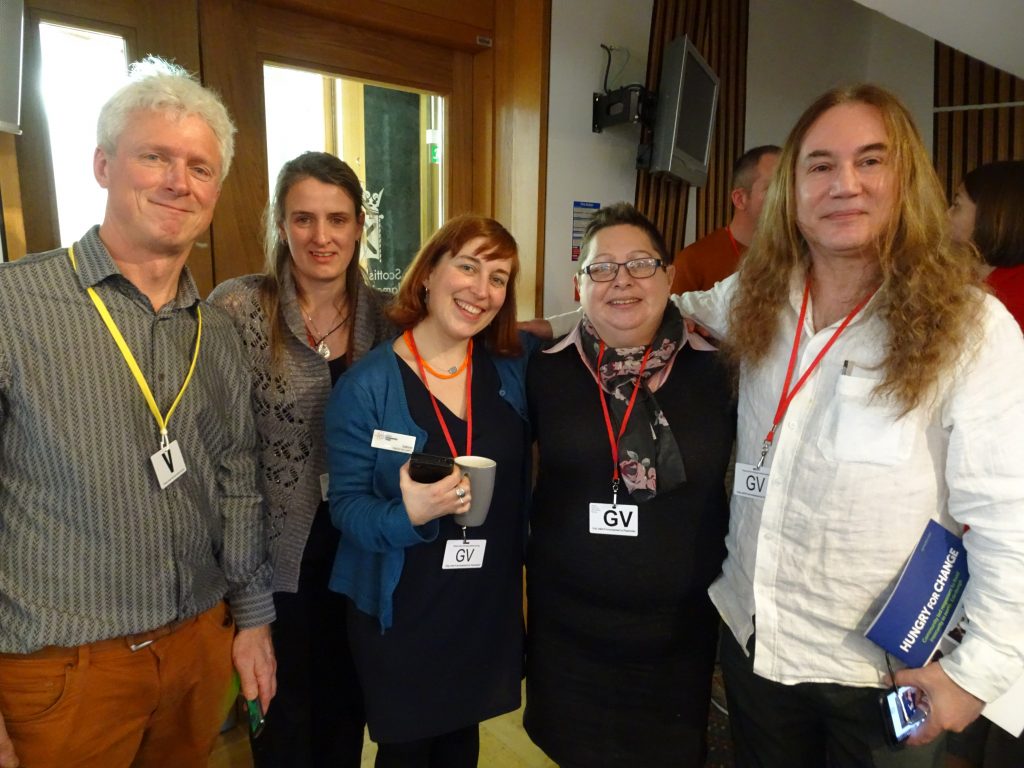
In 2015 the Scottish Food Commission was set up to develop plans to realise Scotland’s ambition to be a Good Food Nation. Parliament has recently sent a clear message to Government that this ambition requires legislation. Colin Smyth advocated legislation as a way to provide “in law the right to food, making that a legal requirement, putting a duty on authorities to help develop that and deliver and tackle food poverty.”
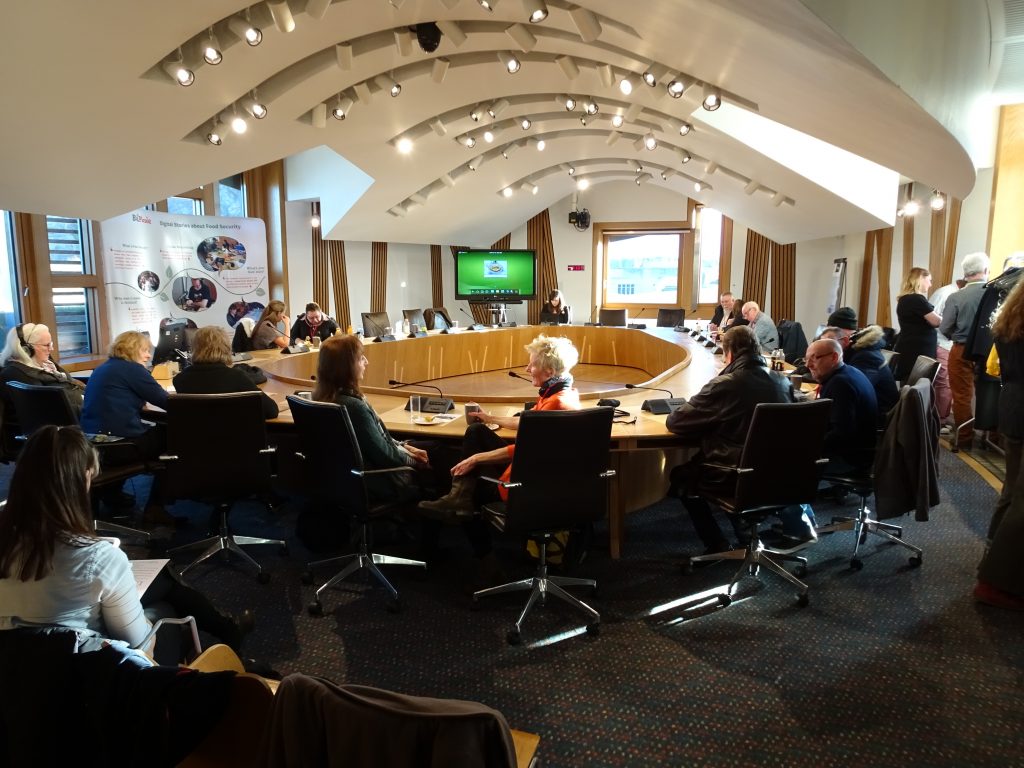
Colin Smyth highlighted the key role of community involvement: “the communities, the work that you are doing, will be absolutely at the heart of it. The BigPicnic project, I think, is a fantastic example of the type of work that we should be seeing developed and we should be seeing supported in the months ahead. I think too often those of us that make policy don’t listen to the voices of people in communities that are actually there trying to deliver.”
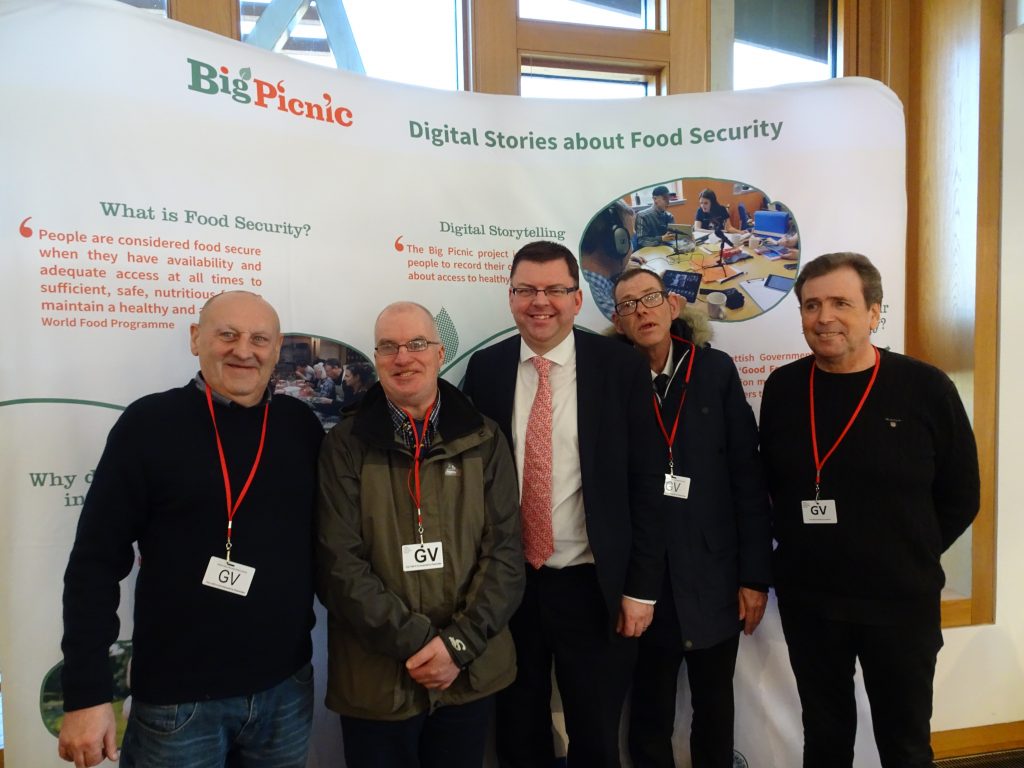
Sean Fitzharris, food activist and participant in the BigPicnic project, spoke of the threat of funding cuts: “Community food initiatives are vital in tackling food inequality, decision-makers must look at these issues from the view of the people suffering and dealing with food inequality on a daily basis.”
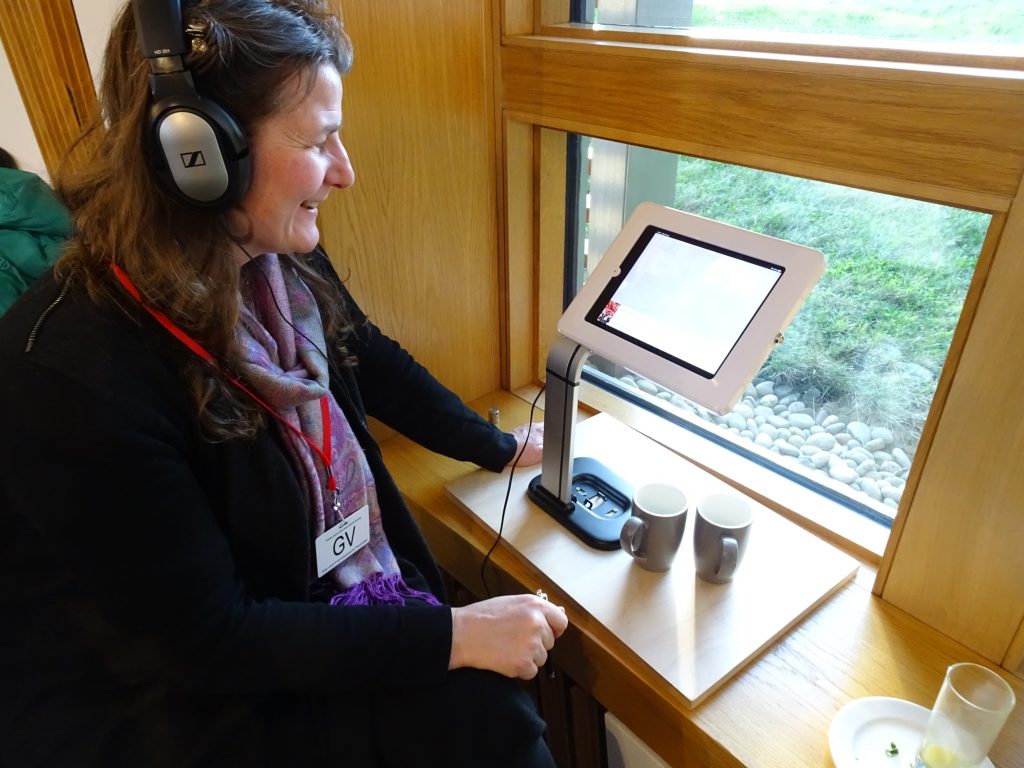
Good support for the event was shown by decision-makers and their representatives. During the three hour event eight MSPs attended and discussed the issues. A further two MSPs sent along their representatives. Ian Edwards, Head of Public Engagement at the Royal Botanic Garden Edinburgh, said “I can’t honestly ever remember such a diverse audience and yet the atmosphere was so friendly and relaxed. The speeches were excellent and very moving and it was great to see lots of people interacting with the digital stories.”
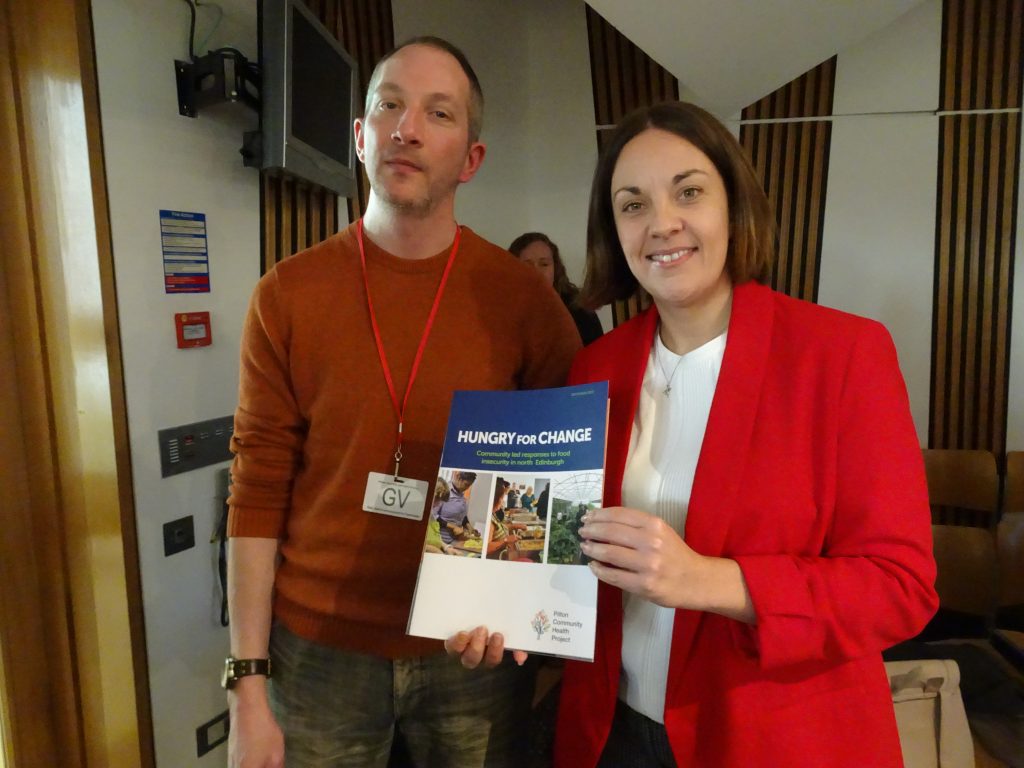
The MSPs who engaged with The People’s Food Stories on 16 January 2019 were: Colin Smyth MSP (Scottish Labour) – Sponsor of the event; Patrick Harvie MSP (Scottish Green Party); Kezia Dugdale MSP (Scottish Labour); Claire Baker MSP (Scottish Labour) Culture, Tourism and External Affairs spokesperson; Michelle Ballantyne MSP (Scottish Conservatives) Communities and Social Security spokesperson; Ivan McKee MSP (Scottish National Party) Minister for Trade Investment and Innovation; Claudia Beamish MSP (Scottish Labour) Environment, Climate Change and Land Reform spokesperson; Alex Rowley MSP (Scottish Labour) Communities and Local Government spokesperson; Kate Fry on behalf of Rhoda Grant MSP (Scottish Labour) Rural Economy spokesperson; Ann Henderson on behalf of Elaine Smith MSP (Scottish Labour) Poverty and Inequality spokesperson; and Caitlin Stott a Rural Economy researcher representing the Scottish Labour Policy Unit.
